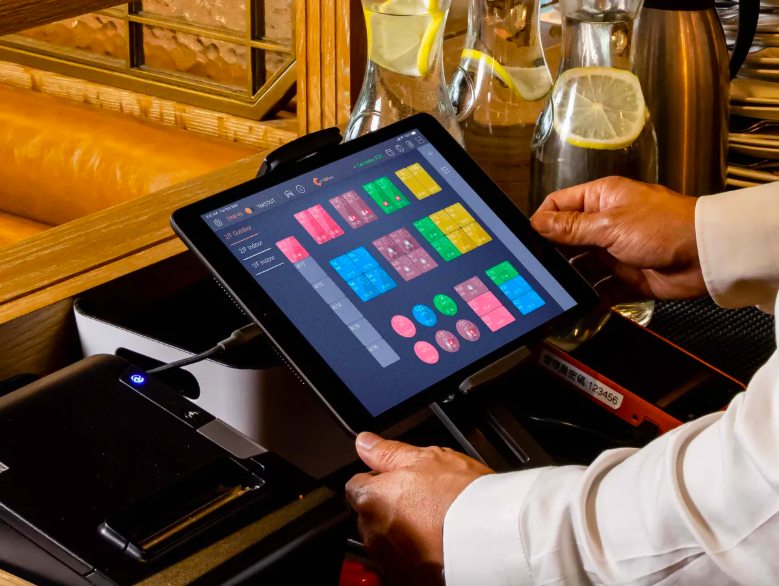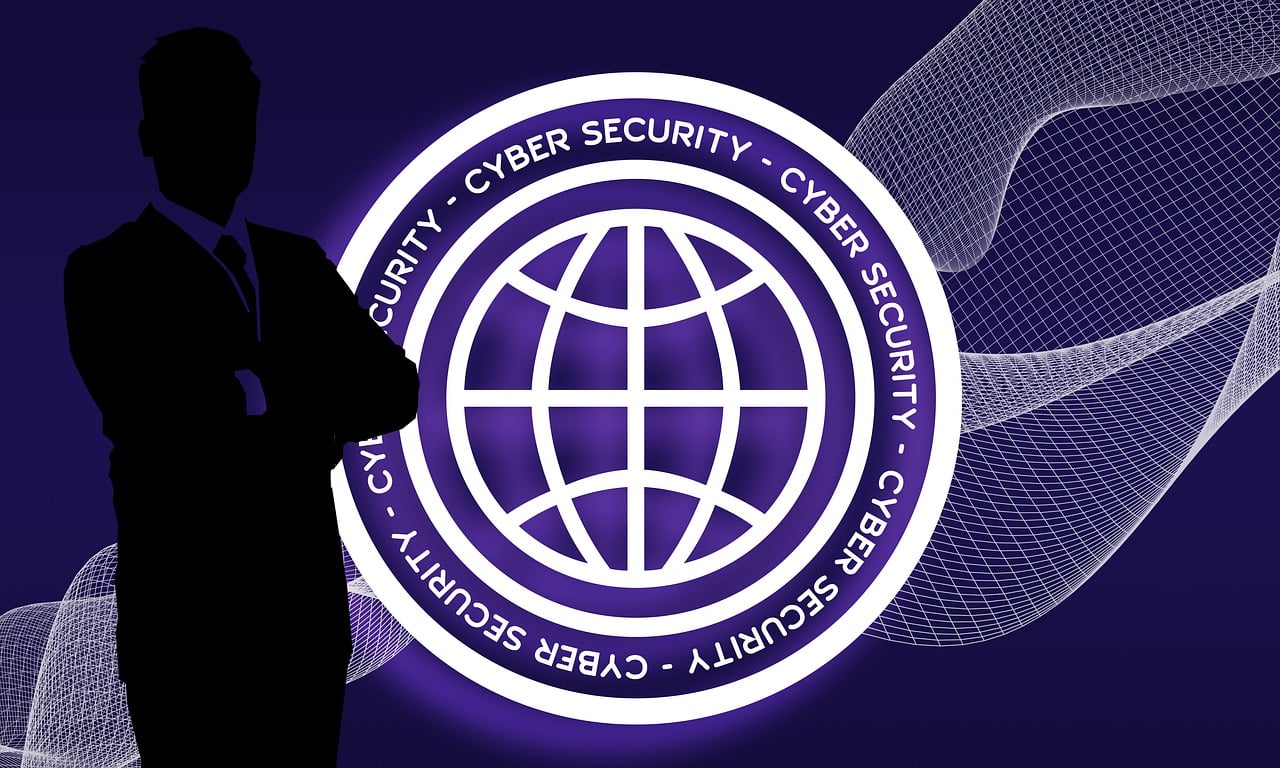
Top 10 Best POS Systems & Companies
Point-of-sale (POS) systems have come a long way from being simple cash registers. Today, they function as comprehensive command centers for your business, managing everything from sales to inventory. For small businesses, a carefully chosen POS system can be a significant asset, helping you manage stock, boost customer loyalty, and keep your team organized—all from a single, central hub.
Our guide is designed to help you find a reliable, feature-rich POS system that can streamline your operations and support your business’s growth.
Our Top 10 Best POS Systems & Companies:
Here’s a quick overview of our top selections and their key strengths:
Our Methodology: How We Evaluated POS Systems
Our review team, comprising industry experts and consumer advocates, rigorously evaluated various POS systems to determine their worth. We employed a hands-on testing approach combined with thorough research, incorporating user feedback, customer reviews, and industry insights to provide a holistic assessment. Our comprehensive evaluation of each brand was based on the following criteria:
Evaluation Criteria:
- Features and functionality: We analyzed essential features like inventory management, sales tracking, and CRM capabilities.
- Ease of use: We assessed the user interface and navigation, considering the ease of learning and the quality of available support and training.
- Hardware compatibility: We evaluated compatibility with various devices, including tablets, smartphones, and registers. We also checked the availability and cost of peripherals like scanners and card readers.
- Payment processing options: We explored the range of accepted payment methods, including cards and mobile wallets. We reviewed transaction fees and integration options with third-party processors.
- Scalability: We gauged the system’s ability to support business growth, looking at multi-store capabilities, employee management, and advanced reporting.
- Integration capabilities: We verified the ease of integrating with other software, such as accounting tools, marketing platforms, and loyalty programs.
- Customer support: We scrutinized the quality and availability of customer support, including options like live chat, phone assistance, and online resources.
- Cost and pricing structure: We reviewed the overall costs, including setup fees, hardware, subscriptions, and transaction fees, and checked for transparency in pricing.
- Security and compliance: We confirmed adherence to security standards, like PCI compliance, and evaluated features such as data encryption and secure access.
- Customer reviews and testimonials: We examined user reviews and testimonials on platforms like Trustpilot and BBB to gauge reliability, customer service, and overall satisfaction.
A Closer Look at the Top 10 POS Systems
1. Lightspeed: Best for Accepting Payments Through the Mobile App
Lightspeed is a unified point-of-sale and payments platform leveraged by top businesses in 168,000 locations worldwide. It offers fast workflows and a comprehensive suite of integrations, providing a single touchpoint for all your business needs. From multichannel and multi-location management to inventory control, integrated payments, and real-time reporting, Lightspeed has you covered.
Whether you operate a retail store, restaurant, or golf course, Lightspeed provides specialized solutions. You can manage takeout and delivery for restaurants, set up in-store loyalty programs for retail, or even manage tee sheets for golf courses. Lightspeed’s hardware is available in kits—including receipt printers, cash drawers, and USB scanners—or as individual items, mobile tap units, or servers that ensure your system runs even without an internet connection.
We chose Lightspeed because its “Order Anywhere” feature reduces wait times and diversifies revenue streams through simple, contactless payments via QR codes. Guests can order from their phones, split bills, and pay with a few taps, with all transaction data sent to your POS in real time. Our experience with Lightspeed’s Mobile Scanner app was impressive; it transforms an Android device into a powerful inventory management tool for counting products, tracking inventory, and fulfilling orders, making it ideal if you prefer not to purchase additional devices.
- Price range: From $69 – $399/month
- Mobile Compatibility: iPad, mobile extensions
- Installation: Free one-on-one onboarding
- Contract length: Customizable as a fixed or rolling term contract
- Integrations: 22 across several categories
Pros:
- Offers a free barcode generator
- Provides free marketing templates for flyers and social media
- No long-term contracts required for the Golf POS
Cons:
- 24/7 chat support limited to English; other languages available during work hours
- Restaurant POS charges extra for online ordering features (pickup and delivery)
2. Toast: Best POS System and Company Overall
 Toast is an Android-based POS system designed specifically for the restaurant industry. It enables you to manage everything from front-of-house to back-of-house operations, multi-store locations, inventory, and even payroll.
Toast is an Android-based POS system designed specifically for the restaurant industry. It enables you to manage everything from front-of-house to back-of-house operations, multi-store locations, inventory, and even payroll.
For front-of-house operations, Toast offers the Go 2, a handheld device for taking table payments, updating menus, sending digital receipts, and splitting checks. It also features a self-service kiosk for customer orders, add-ons, and tips. In the kitchen, its display system syncs with front-end devices to show incoming orders. Staff can mark orders as complete with a double tap, and the system can text customers when their food is ready. It even tracks how quickly each station prepares dishes.
We chose Toast because we appreciated its sleek, commercial-grade Android devices that blend with any decor. These spill-proof terminals can handle kitchen accidents and use a hardwired connection for reliable offline mode, ensuring you can always process contactless, swipe, dip, and tap payments. You can even schedule a tour for a closer look. Our experience setting up a dummy account to test the Toast TakeOut mobile ordering app was impressive; customizing the storefront profile, updating menus, and adding curbside pickup options were straightforward. The app’s commission-free model and access to thousands of potential customers were definite highlights.
- Price range: From $0.00 – $69/month
- Mobile Compatibility: Android-based mobile compatibility
- Installation: Free installation with the first terminal
- Contract length: One year
- Integrations: 200+ integrations with restaurant partners
Pros:
- Commission-free processing of online orders
- Starter plan includes free hardware kit
- Multilingual hardware support
Cons:
- $300 fee for late cancellation of installation or training
- Customer support chat feature limited to US users
3. Merchant One: Best for Businesses Seeking Merchant and Payment Processing Solutions
Merchant One is a credit card payment processing company that provides solutions to small and large businesses across various industries. The company partners with Clover to resell its state-of-the-art POS systems, offers customers free training on their use, and services the hardware in-house, ensuring a high-quality user experience.
While Merchant One has excellent reviews on Trustpilot, some complaints mention issues with customer service, billing, and contract terms. Nevertheless, Merchant One’s dedicated managers will respond to queries and guide you on setting up your account and processing transactions. We chose Merchant One because it can process both POS and mobile phone credit card payments. Our experience showed that Merchant One provides a dedicated account manager and offers lower card payment processing fees than some competitors.
- Price range: Price by quote only
- Mobile Compatibility: Not specified but supports mobile phone credit card payments
- Installation: Not specified
- Contract length: Not specified
- Integrations: Not specified
Pros:
- Assigned account managers
- State-of-the-art technology
- Tailored solutions for different businesses
Cons:
- Free trial unavailable
- Billing and pricing issues noted
4. Square Point of Sale: Best for Driving Sales Through Social Media
Square offers custom-tailored POS systems for restaurants, retail, and appointment-based businesses. Its free software handles over four billion transactions annually and comes without contracts or setup fees. From the start, you’ll receive encrypted payments, a free POS app, dispute management, and account protection.
Square also provides a free magstripe reader, live support, and fraud prevention. You can accept card payments immediately at a single rate, regardless of transaction type. Plus, you get PCI compliance, chargeback assistance, and real-time reporting. For businesses with over $250,000 in annual sales, the platform offers custom payment processing rates. We chose Square because it empowers small businesses with a versatile, budget-friendly solution that transforms your phone into a contactless payment terminal. Its user-friendly interface requires minimal training, allowing quick and efficient payment acceptance. With customizable add-ons like gift cards and team management tools, Square POS streamlines operations by reducing the need for multiple software systems. Our experience trying Square’s social media ordering features was impressive; we set up our dummy account to take orders directly from Instagram, Facebook, and Google, and offered curbside pickup, local delivery, and shipping, delivering a robust solution for social media sales.
- Price range: From $0 with 2.6% + 10¢ per transaction (in-person payments)
- Mobile Compatibility: Fully compatible with iPad and mobile devices
- Installation: No setup fees
- Contract length: No contracts
- Integrations: 30+ app integrations
Pros:
- Enhances customer purchasing power with Afterpay installment options
- Free forever plan
- Includes a free card reader
Cons:
- Free restaurant plan lacks full 24/7 phone support
- Higher fees (3.5% + 15¢) apply for manually entered card transactions
5. SpotOn: Best for Payment Mobility Options
SpotOn offers point-of-sale systems and business software solutions for restaurants and small businesses, including retail, automotive, and health and beauty. You can offer customers multiple payment options, including cash, cards, and mobile payments like Apple Pay and Google Pay. Plus, with its offline mode, SpotOn keeps your business running smoothly even when the internet goes down.
SpotOn boasts features like menu management, table layout management, and robust reporting and analytics. Its functionality can be further enhanced with digital menus, QR ordering, and payment add-ons. Additionally, SpotOn accommodates customers with loyalty programs, gift cards, and guest WiFi. We chose to review SpotOn because it streamlines the tipping process, potentially increasing your team’s earnings through suggested amounts on receipts or device screens. The system allows you to track tips and transactions by employee, ensuring fair distribution, and you can easily adjust tip settings, including preset suggestions, directly from the device. Our experience found the Virtual Terminal and mobile POS to be game-changers at pop-up events, handling everything from sales to refunds without bulky equipment. We were also impressed by the support team’s expertise in quickly resolving hardware and software issues.
- Price range: From $0 – $135/month
- Mobile Compatibility: Android/iOS
- Installation: Offers in-person training and setup
- Contract length: No long-term contracts
- Integrations: Features premium integrations like MarginEdge, Craftable, and Davo
Pros:
- Software and hardware costs are integrated into processing fees
- Top-rate staff management features with Teamwork app
- Benefit from 24/7 phone support from real humans
Cons:
- Commission-free online ordering not available on lowest plan
- Limited hardware options
6. FiveStars: Best for Small Businesses that Want a Rewards Program
FiveStars is a unique service that enables small businesses to set up customer rewards programs and automated marketing campaigns. With FiveStars, your business can create promotions and automatically alert customers to them to encourage repeat visits. The service also provides a built-in customer acquisition network by listing your business in the FiveStars app.
FiveStars is also a payments processor, though you are free to use your existing payment provider. If you choose FiveStars for payments, the company will match your current transaction fee rate.
- Price range: Price by quote only
- Mobile Compatibility: Yes
- Installation: Not specified
- Contract length: Not specified
- Integrations: Not specified, but compatible with existing POS systems
Pros:
- Automatic text and email campaigns to reach customers
- Segment your customer base to target promotions
- Compatible with your existing POS
Cons:
- Pricing available by quote only
- Other businesses are marketed to customers on your display
How to Compare the Best POS Systems & Companies
With so many unique POS solutions tailored for different industries and use cases, carefully weighing your options helps ensure you find the perfect fit. Deciding on the non-negotiable features your business needs and those you can live without will lead you to the right choice.
Here’s a comparison of some key POS systems:
Types of POS Software

There are four main types of POS software:
- Mobile POS software: This cloud-based software comes as an app on your smartphone or tablet. It’s usually compatible with a receipt printer and a credit card swiper but isn’t as powerful as a full terminal POS system. It’s ideal for sole traders such as plumbers or mobile food cart owners.
- Tablet POS software: Similar to mobile POS software but offers more features and capabilities. You could use tablet POS software to manage large and complex retail businesses with multiple locations, including inventory tracking, employee time tracking, payroll, and accounting. They are compatible with many POS hardware solutions to form a complete POS system for any situation.
- Terminal POS software: This is a fixed POS software with full back-office capabilities. It can be cloud-based or on-premise and is best suited for large retail or online stores, spas, malls, and other brick-and-mortar businesses.
- Self-service or unattended POS software: Designed for use in kiosks and outdoor units where it’s impractical to staff an employee. It’s often integrated with another nearby POS system, providing an extra sales point in busy grocery stores, coffee shops, or food trucks. It can be cloud-based or on-premise as it’s not used with a mobile system.
You’ll also find POS software designed for the unique needs of specific industries, such as restaurant and hospitality businesses, apparel retail, financial services, academia and education, and pharmaceuticals.
The costs of your POS software will vary depending on the type of software you choose. Mobile POS software, like a smartphone app, can start at $50 per month, while more complex software can reach several hundred dollars monthly. When you buy POS software, you’ll usually need to pay an upfront purchase price, plus ongoing monthly or yearly payment processing fees.
Other factors that may affect the cost of your POS software plans include:
- How many features you add
- Any hardware included
- Number of integrations
- Your operating system
POS Systems Costs
Point of Sale systems vary greatly in price depending on the type and size of business you’re looking to equip. There are two costs to consider when looking for a POS system: monthly software fees and an installation fee.
Monthly software costs range from $0 to $100+ a month, with most paid POS programs costing between $15 and $30/month. Installation fees usually include software installation as well as the hardware itself. Paid POS systems don’t always have user caps, meaning an unlimited number of workers can use the program to make transactions.
There are, of course, “free” POS systems. This means that the hardware and monthly plans start at $0, but they charge businesses per transaction. For example, a POS provider can charge anywhere from 2 to 4% plus a few cents per card-based transactions or manual keyed-in sales.
Getting the Right POS Hardware
POS hardware is the indispensable other half of your POS system. You’ll need the right hardware to match the actions and transactions you want to carry out using your POS system. A basic set of POS hardware consists of:
- Printer to offer hard copies of receipts (retail stores, restaurants, and other brick-and-mortar businesses are likely to need this)
- A POS terminal, or iPad or Android tablet to run your POS software
- Credit card reader
- A cash register to keep cash transactions secure and logged into your system
Depending on your business, you might also need:
- Extra tablets so wait staff can process payments at the table in restaurants
- A router to strengthen your internet for cloud-based POS systems
- A local server to host your on-premise POS software
- Weight scales for food retailers
- Barcode scanners
- Networking cables to connect all of your hardware
- An extra kitchen printer
- Self-serve checkout kiosks
The Benefits of a POS System for Your Business
With a POS system, your business can retain more customers through a better, targeted loyalty program and you can also track inventory so that you never run out of stock unexpectedly. A POS system can help you run complex discount offers when appropriate.
With the right POS system, you can also analyze sales history to discover seasonal buying trends and correlations, which can be useful when you want to increase sales. You can also remove manual error by using barcode scanners and automatic synchronization, as well as combat absenteeism with a more reliable employee tracking system.
Other major benefits include improving payment security and the ability to make more sales thanks to your ability to accept payments across the market.
Cloud-Based vs. On-Premise POS Systems
A cloud-based POS system stores data on remote servers and can be accessed online, whereas a traditional or on-premise POS system stores data on a local server and can be accessed through an internal network. Here’s a breakdown of the main differences:
If you have long-term business plans and your requirements are likely to evolve as your business grows, then a cloud-based POS system is probably the best choice for you. On the other hand, if you have fixed needs or a small budget, you might be best served by choosing a traditional (on-premise) POS system.
How to Choose a POS System Provider
Choosing a POS system provider depends on what kind of business you’re running, how long you’ve been operating, and the scale of your operation. Finding the perfect system provider, though, takes some more research.
Here are some questions, organized by category, that can help you choose the right POS system provider:
Hardware and Features
- What features do I need?
- What devices are needed to process payments?
- What hardware do I need? If you need a lot of items, a provider that bundles hardware options together with the software is a better bet, but if you’re going to be using your existing iPad, you’ll need something different.
- What kind of receipts are generated?
POS Setup
- Does the POS system integrate well with my existing business apps?
- Is it easy to set up and use? If it’s more complex, does it offer training?
- How good is customer service?
Costs
- Do I want to save money upfront or keep my monthly costs down?
- How does payment processing work? What kind of hardware is offered by the POS company? Some POS companies offer technology unique to the brand, while others simply offer iPad rentals.
- Is the pricing plan transparent?
- Are the payment processes cloud-based or more suitable for in-person transactions?
Scalability
- What analytics does it offer and what metrics can it check? Make sure that the ones that are most important to you are included in the package.
- Does this POS system provide assistance for inventory management? If yes, it’s valuable to see whether there is help with product visibility, inventory, purchasing and replenishing, storage, analyzing inventory and orders, or multichannel tracking.
- Does this POS system have integrations for eCommerce, email marketing, or social media? A POS system can provide real-time information to better customer experience.
- Is it simple to scale up as your business grows?
Seal the Deal with the Ideal POS Solution
Finding the perfect POS system can be a game-changer for your business. Businesses across the board are recognizing the power of these systems; in fact, 86% of restaurants use POS data to make decisions about discounts, loyalty programs, and marketing campaigns. Whether you’re looking for a POS for small businesses or managing a larger operation, there’s a system out there that fits your needs and budget.
Top contenders like Toast, Lightspeed, and Square each offer unique strengths—from restaurant-specific features to multi-industry versatility and small-business simplicity.
As you evaluate options, consider how each system aligns with your specific needs, whether it’s robust inventory tracking, seamless payments, or powerful analytics. Ultimately, investing in the ideal POS is an investment in your company’s efficiency, growth, and long-term success.




